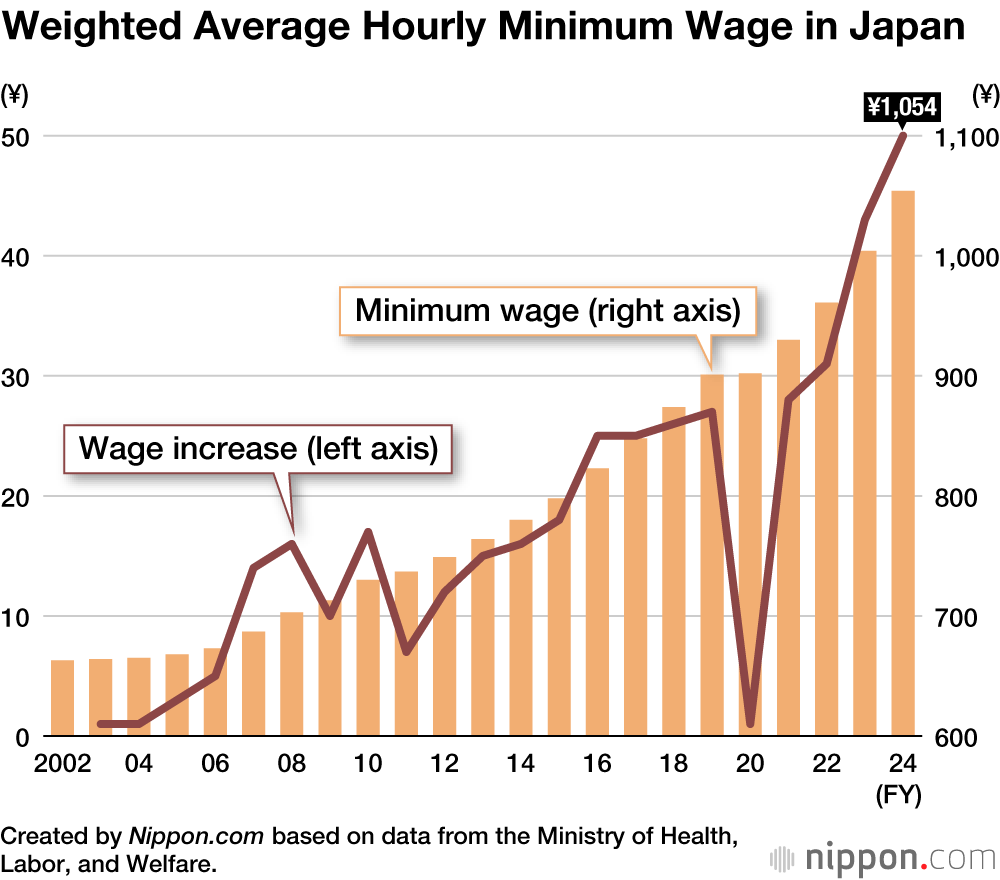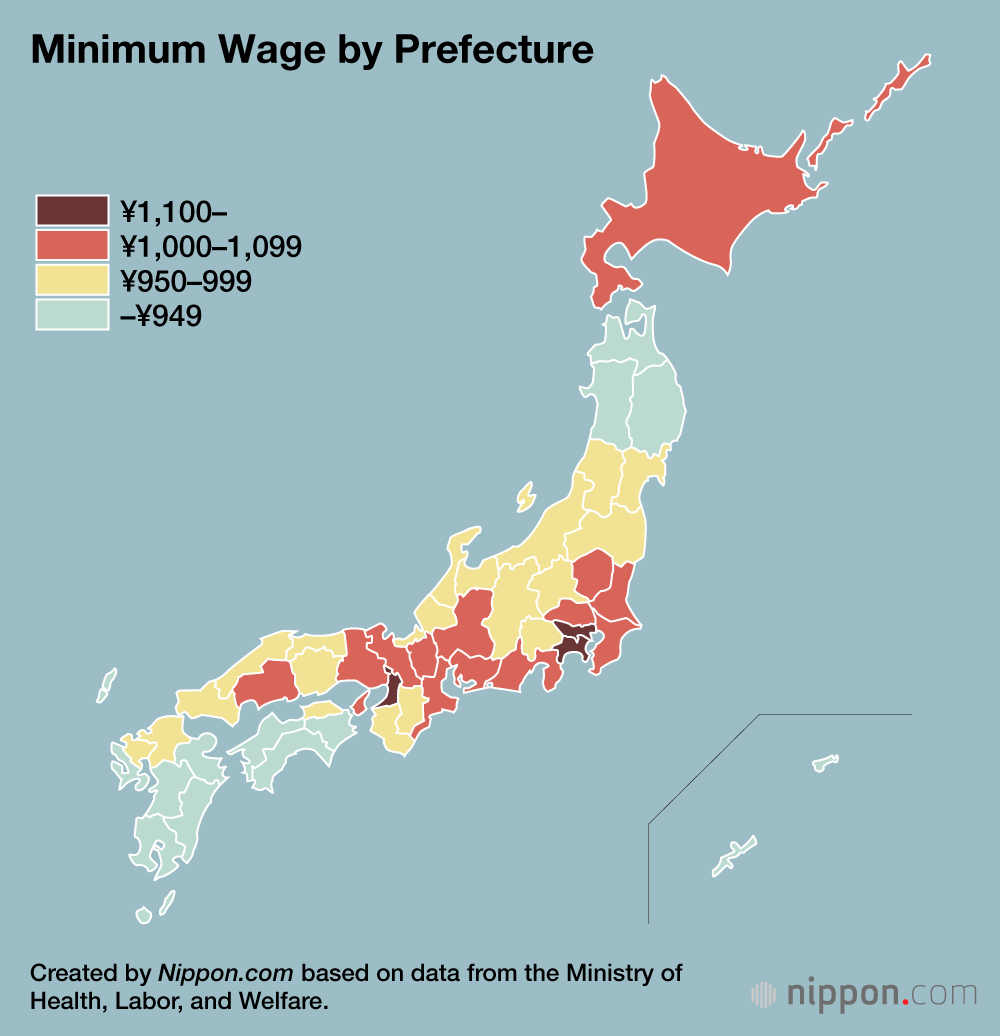
Minimum Wage Rises Record ¥50 in Japan
Economy Work- English
- 日本語
- 简体字
- 繁體字
- Français
- Español
- العربية
- Русский
On July 25, a subcommittee of the Central Minimum Wages Council submitted a report to Minister of Health, Labor, and Welfare Takemi Keizō, advising that the minimum wage should be raised by a record ¥50 in fiscal 2024. This is significantly higher than the rise of ¥31 in fiscal 2022 and ¥43 in fiscal 2023, and will be the largest increase since the method of indicating wages on an hourly basis was adopted in fiscal 2002. If the increase goes ahead as expected, it will raise the national average hourly minimum wage from ¥1,004 to ¥1,054.
The subcommittee’s guidelines divide prefectures into three categories according to their economic conditions. However, this time the minimum wage for all three will be raised by the same amount of ¥50. The council in each prefecture will decide the exact amount of the wage increase based on guidelines and that new minimum wage will be introduced from around October 2024.
The new minimum wage will be ¥1,163 in Tokyo, ¥1,162 in Kanagawa, and ¥1,114 in Osaka, all exceeding ¥1,100. In a further 16 prefectures, mostly in Japan’s three major metropolitan areas, it will be over ¥1,000, including Saitama with ¥1,078, Aichi with ¥1,077, and Chiba with ¥1,076. Although there will no longer be a minimum wage lower than ¥900 after this revision, there will still be 12 prefectures, in the Tōhoku, Kyūshū/Okinawa, and Shikoku regions, where it will remain below ¥950.
However, with the cost of raw materials and utilities continuing to soar and the difficulty for smaller businesses of passing on those increased costs through their sales prices, some commentators have noted that these wage hikes could bring further burdens to business operations.
(Translated from Japanese. Banner photo © Pixta.)


